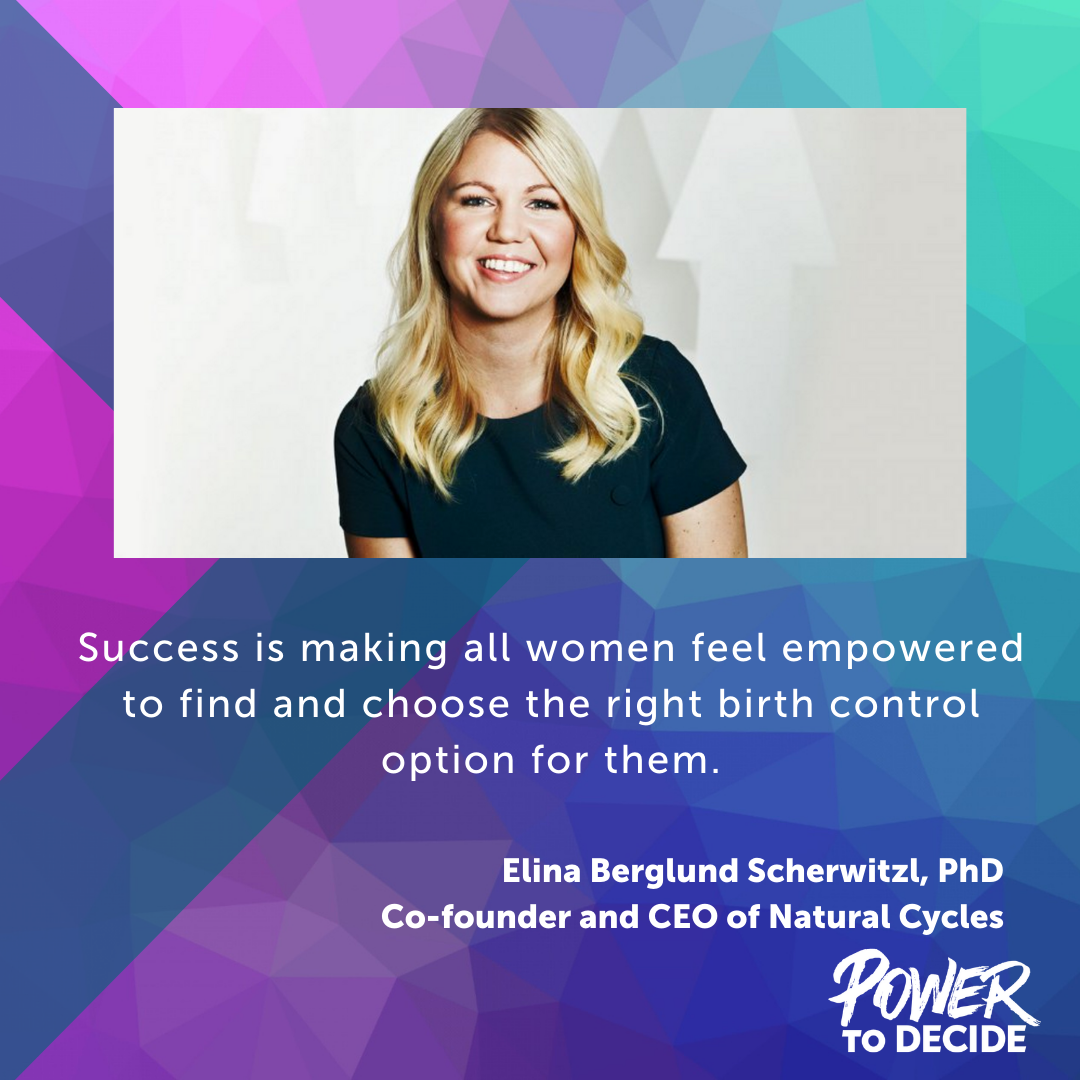October 2020 Power Womxn
We’re committed to uplifting the amazing womxn in tech who are working to ensure that everyone – no matter who they are or where they live – can achieve reproductive well-being. Brought to you by Pandia Health, we are pleased to launch the Power Womxn series in which we will feature womxn FemTech leaders and founders who are out to change the world!
This month’s Power Womxn is Elina Berglund Scherwitzl, PhD, co-founder and CEO of Natural Cycles.
1. What inspired you to start/lead your company?
My own personal experiences with birth control ultimately led me to start Natural Cycles. Like many women, I’ve used multiple forms of birth control throughout my life.
When I was a teenager, my doctor encouraged me to go on the birth control pill. After experiencing adverse effects as a result, I switched to a birth control implant. That worked quite well for me throughout most of my 20’s, but around the time we got married my husband, Raoul, and I started talking about our future family. We wanted to start trying within a year or two, so I wanted to remove my birth control implant. In addition to it being invasive, I also wanted to take a break from hormonal birth control to give my body a chance to get back to its natural state well before a pregnancy.
I quickly realized I was extremely limited when it came to finding a regulated birth control option that was both non-invasive and non-hormonal. As a particle physicist and researcher, I decided to take things into my own hands so I developed Natural Cycles, the first and only FDA cleared birth control app. The app analyzes a woman’s body temperature to determine when she ovulates and when she is and isn’t fertile.
2. How does your work help give people the tools to achieve reproductive well-being?
There is no one size fits all birth control option and what helps one woman achieve reproductive well-being is likely different from the next. Therefore, I believe women should have access to more contraceptive options and the education needed to choose the best option for herself. With Natural Cycles, we’ve given another option. One that is hormone-free.
Every day we hear from women who felt like they were on their own with no birth control option that suited their personal needs before Natural Cycles. When I hear these stories and how much Natural Cycles has taught users about their own bodies, it makes me feel really proud of the work our team is doing.
3. How would you define success for your company and for the fem tech space, more generally?
I would say in simplest terms, success is making all women feel empowered to find and choose the right birth control option for them. And on top of that, helping them achieve pregnancy when the time is right for those who want to have children.
As a whole we talk a lot about preventing pregnancy, but not so much about planning pregnancy - which is as equally important when talking about reproductive well-being. Most women, myself included, spend the majority of their fertile years trying to prevent pregnancy and there are so many questions and frustration when it comes time to conceive.
For FemTech in general, anything that can be done to improve and drive research within women’s health is important progress made.
4. How do you see the FemTech space changing in the next 5 years? What are you looking forward to?
I’m looking forward to the next five years because I believe the FemTech space will see even more rapid growth. This is due to the fact that women are not only asking for—but demanding—more options across women’s health but also because we’ve seen the role that technology can play in advancing health over the last six months during the COVID-19 pandemic. Technology can help provide women with more options and technology can play a role in making it easier for women to access birth control.
5. What advice would you give other women looking to get into FemTech?
I’d say do it! But to never forget that technology is just a piece of it. In order for FemTech to advance and really make a difference, the technology must be grounded in science while also maintaining a human element.
While technology can play a big role in advancing women’s health, at the end of the day technology can’t completely replace the human touch that’s needed when dealing with such a personal area.



